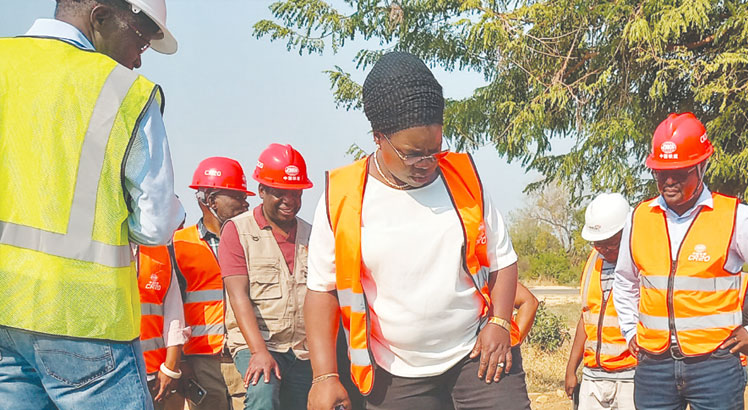Ministry of Lands says it h as reversed a land regulations proposal that set a ceiling
of 1 000 hectares (ha) in the acquisition of land for agriculture because it did not tally with Malawians’ aspirations.
The ministry’s Principal Secretary (PS) Devie Chilonga in an interview yesterday confirmed that the controversial provisions have since been removed to align the law with the aspirations of Malawians.
He said: “The ceilings were some of the proposals that some stakeholders had submitted to the ministry to be part of the regulations. However , during consultation workshops that the ministry conducted, the majority were against such elaboration; hence, they were dropped to respect the views of the majority.
“We want these regulations to be in line with the aspirations of Malawians; hence, extensive consultation in this process.”
Said it was an anomaly:
Silungwe
The draft land regulations set to guide the implementation of the amended Land Act of 2022 contained a provision that “no person shall be entitled to hold any land for agriculture purposes in excess of 1 000 hectares. In case of vacant land, no person would be allowed to hold more than two plots and not more than five properties for developed land”. Economic commentators and some estate owners expressed concern that the provision would affect investment in agriculture and the economy and lobbied for reconsideration.
Chilonga said the final draft of the regulations will be submitted to the Ministry of Justice by next month to draft actual regulations “for gazetting purposes”.
Among those who raised concerns during consultations were estate owners for crops such as tea, sugar, coffee, and macadamia, who felt disadvantaged by the land ceiling. In a separate interview, yesterday agriculture think-tank Mwapata Institute research fellow Dr. Christone Nyondo said stakeholders were justified to raise concern with this provision because it both threatened foreign direct investment and aspirations outlined in Malawi 2063 (MW2063), the country’s long-term development strategy.
He said: “This would be a threat to the current investors, but even future ones. Think of a scenario where an investor from the UK requires 5 000ha for macadamia production, the ceiling would put them off and force them to invest elsewhere.
“Secondly, the Malawi 2063 development blueprint envisages an improvement in agriculture commercialisation and the set ceiling does not complement this agenda; hence, the removal of the ceiling cures a contradiction in policy.”
In his October 2022 analysis, land law expert Chikosa Silungwe argued that the setting of the ceiling under the subsidiary legislation was an anomaly as it was supposed to be provided for in the principle Act.
The former Attorney General did not specify what would happen to those who owned land beyond the set limit and if the regulation would have a retroactive effect. also said the draft regulation
From an economic perspective, Malawi University of Business and Applied Science associate professor of economics Betchani Tchereni also faulted the set ceiling, describing it as a blow to attracting investment in Malawi.
Reads his analysis in part: “Having land size ceilings capped only up to 1000ha might discourage potential investments in commercial agriculture. Some people may need more parcels of land holdings for their nature of business, for example cash crops, hotels and education. The ceilings, therefore, need to be adjusted upwards.”
In 2016, Parliament approved a list of 10 land-related laws, but the then opposition, notably the Malawi Congress Party led by President Lazarus Chakwera, then Leader of Opposition, walked out of the House in protest during debate.
Soon after winning the presidential election in 2020, Chakwera directed that the House should immediately review these laws, saying the 2016 laws had brought about discontentment and hard errors because they were rushed.
The enactment of the 2016 laws followed years of discussions which started in 1996 after former president Bakili Muluzi set up a presidential commission of inquiry on Land Policy Reform which culminated in the Land Policy in 2002
The post U-turn on Land laws appeared first on The Nation Online.
 Moni Malawi
Moni Malawi 

